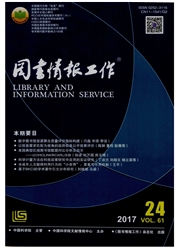

 中文摘要:
中文摘要:
[目的/意义]为揭示作者研究兴趣的演化特征,结合生命周期理论和Author-Topic(AT)主题模型提出作者研究兴趣演化分析框架。[方法/过程]收集CNKI数据库中锂离子电池领域的期刊论文数据,通过文献信息增长规律对学科生命周期发展阶段进行划分,利用AT主题模型抽取分析作者-主题、主题-词项以及文档-主题概率分布,通过追踪学科领域生命周期中主题强度和作者研究兴趣度的变化趋势进行演化分析。[结果/结论]实证研究选择核心作者作为分析对象,结果显示国内锂离子电池领域的核心作者的研究兴趣度普遍在成长期达到最大值,对学科发展起到促进作用。核心作者的研究兴趣演化趋势与相应的主题演化趋势一致时,能够引领该研究主题的发展。但也存在一些研究主题,其演化趋势并不同于核心作者的研究兴趣演化趋势,这部分主题往往强度值较大,涉及的研究方向比较广。
 英文摘要:
英文摘要:
[ Purpose/significance ] In order to discover the dynamic characteristic of authors' research interests, this paper puts forward a research framework based on life cycle theory and Author-Topic (AT) model. [ Method/process ] The research collects literatures of Lithium Ion Battery from CNKI database and discribes the disciplinary field life cycle by literature information growth rule. Author-Topic distribution, Topic-Word distribution, Document-Topic distribution ware extracted by AT model. Topical and research interests evolutionary analysis were achieved by tracking the topic trends and authors' s research interests in different lily cycle stage-slices. [ Result/conclusion] The experimental results by running in the collections of 5508 CNKI literatures show that the research interests of core authors become biggest in growth stage of Lithium Ion Battery, which proves that these core authors really promote the development of discipline. Genarally speaking, the core author whose research interests evolutionary trend agrees with topic evolutionary trend, could lead to the development of this topic. But, there are still some topics, whose evolutionary trend is not affected by core authors. Usually, these topics have bigger topic intensity and contaion more widely research directions.
 同期刊论文项目
同期刊论文项目
 同项目期刊论文
同项目期刊论文
 期刊信息
期刊信息
